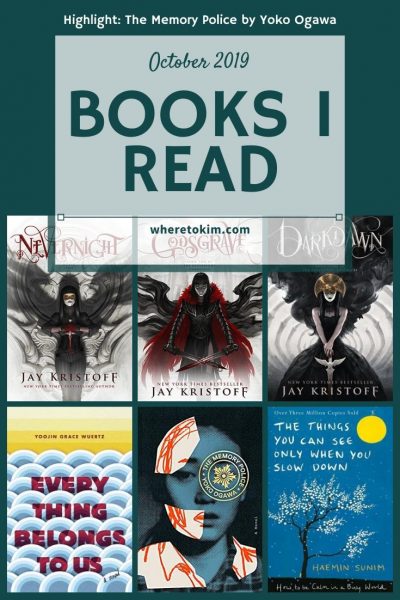Are you often wondering what to read next and which books help you immerse yourself while traveling abroad? See here what I read in October 2019.
What I read this month
This month I was on holiday in South Korea and while a holiday usually means lots of reading it meant watching movies and researching places to visit this time. Because I was visiting lesser-known places in South Korea this time, there was less information available in English online, so I usually spent an hour in the evening to fix the logistics for the next day but also to add more interesting places to visit in South Korea to the sightseeing list I had prepared before my trip.
Halfway in the trip, I stayed a few days in a traditional Korean house without, as expected, a television. So I read a lot in those days.
This month I read the following books:
- one Korean novel: Everything Belongs to Us by Yoojin Grace Wuertz
- a fantasy trilogy: The Nevernight Chronicle by Jay Kristoff
- a Japanese novel: The Memory Police by Yoko Ogawa
- an audiobook: Things You Can Only See When You Slow Down by Haemin Sunim.
Review of Everything Belongs to Us by Yoojin Grace Wuertz
First up is this Korean fiction debut novel by Yoojin Grace Wuertz. The writing style is pleasant and the first half of the book is as described in the blurb below. The two female characters were very much full-fledged characters but the male lead was very bland and boring, not ambitious or charming as it says in the blurb at all. The story starts as many translated Asian works do: a person facing hardship because of family circumstances. It meanders a bit, not much happens until at one point some conflicts arise after which all characters just continue with there lives but then with one person less to spend time with.
I ended up feeling neutral about this book. I really liked the first half of the book, even though the second half was probably more engaging. I got a bit bored halfway through and stopped caring what happened to the characters. At the end of the book, the story suddenly stops and we get an epilogue about their future lives that turn out just as expected. As this is only a debut novel, I will give this author another chance if she publishes a new book.
Locations mentioned: the story is centered around Seoul National University (SNU). Namin lives in Miari in northern Seoul and attends SNU in the south. The expat neighborhood Itaewon is also mentioned as the place where Namin’s sister moves to.
Check it out on Amazon.
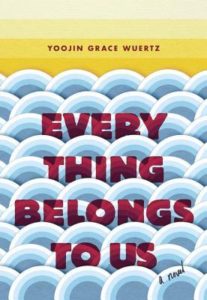
Cover description:
Seoul, 1978. At South Korea’s top university, the nation’s best and brightest compete to join the professional elite of an authoritarian regime. Success could lead to a life of rarefied privilege and wealth; failure means being left irrevocably behind.
For childhood friends Jisun and Namin, the stakes couldn’t be more different. Jisun, the daughter of a powerful business mogul, grew up on a mountainside estate with lush gardens and a dedicated chauffeur. Namin’s parents run a tented food cart from dawn to curfew. Now Jisun wants as little to do with her father’s world as possible, abandoning her schoolwork in favor of the underground activist movement, while Namin studies tirelessly in the service of one goal: to launch herself and her family out of poverty.
But everything changes when Jisun and Namin meet an ambitious, charming student named Sunam, whose need to please his family has led him to a prestigious club: the Circle. Under the influence of his mentor, Juno, a manipulative social climber, Sunam becomes entangled with both women, as they all make choices that will change their lives forever.
Review of The Nevernight Chronicle by Jay Kristoff
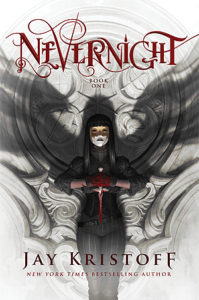
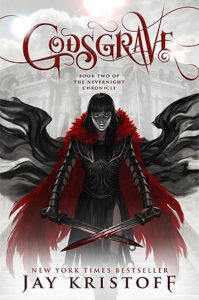
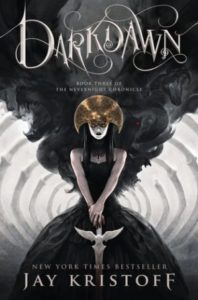
A trilogy with footnotes, hilarious. I am very tempted to write a short story with footnotes as well, as it provides the opportunity to spice up the story with thoughts that would normally be scrapped.
Below reviews are very short, as not to give spoilers for the second and third books. For those interested in fantasy, I would certainly recommend this trilogy.
Location: the story takes place in a fantasy world based on Roman traditions. So read this when visiting Italy.
Check it out on Amazon.
Nevernight
The first book was the strongest, introducing the world and characters. Our main character is likable but nowhere near a traditional ‘hero’. She is a sixteen-year-old girl and just perfect: not too childish and not too mature. Learning to be a killer to take revenge on the wrongs inflicted upon her family. But even though she is rather accomplished already, so are the others at this school of assassins. All other acolytes are competition; it is hard to distinguish between friend and foe.
Godsgrave
Godsgrave is the second book of the trilogy but it is definitely not a filler book or only a bridge between books one and three as some second books tend to be. The story loses some speed as it starts some months after book one and you find out what happened in between via flashbacks. It is a technique that triggers the reader: you want to know why Mia is in that situation but every time the ‘now’ gets interesting you switch back to the ‘past’ and the other way around. The same technique was used in the first book, though in a better way as both stories were equally intriguing.
Darkdawn
The third book, published in September 2019, was my least favorite of the three. That’s mainly because of the many paragraphs recounting what happened earlier in the story and certain repetitive arguments and scenes in the first 200-300 pages of the book. After that, the story gained speed and the ending was well-written. I do very much admire the Game-of-Thrones-esque demise of certain main characters.
Cover description of Nevernight, book 1 of The Nevernight Chronicle
In a land where three suns almost never set, a fledgling killer joins a school of assassins, seeking vengeance against the powers who destroyed her family.
Daughter of an executed traitor, Mia Corvere is barely able to escape her father’s failed rebellion with her life. Alone and friendless, she hides in a city built from the bones of a dead god, hunted by the Senate and her father’s former comrades. But her gift for speaking with the shadows leads her to the door of a retired killer, and a future she never imagined.
Now, Mia is apprenticed to the deadliest flock of assassins in the entire Republic—the Red Church. If she bests her fellow students in contests of steel, poison and the subtle arts, she’ll be inducted among the Blades of the Lady of Blessed Murder, and one step closer to the vengeance she desires. But a killer is loose within the Church’s halls, the bloody secrets of Mia’s past return to haunt her, and a plot to bring down the entire congregation is unfolding in the shadows she so loves.
Will she even survive to initiation, let alone have her revenge?
Review of The Memory Police by Yoko Ogawa
A very intriguing story about not very remarkable characters. The story itself is slow; a lot happens but the characters don’t get very excited about it because it is normal in the world they live in. The story is set on an unnamed island, probably near the coast of Japan. But because boats stopped existing there is no interaction with the mainland. The story is dystopian in a way that reminds you of George Orwell’s novels: ‘ big brother is watching you’ though in this case they’re called the Memory Police. If something disappears from the world and you still remember its existence, then they come for you. It starts with small things like roses disappearing, turning into much bigger things. After a disappearance, everything to do with the concepts has to be burned. When this happened to books, the novel reminded me of Ray Bradbury’s Fahrenheit 451. The English translation was published only this year, but the Japanese version was written in 1994.
The main character is a novelist and her newest novel is about a woman learning to use a typewriter and this person’s relationship with the teacher. This is where it gets interesting as both the real story and the story in the novel being written come together in a beautiful and very powerful way. I can’t tell more about it without spoiling the story, but the way those stories mirrored each other makes you apply the symbolic of the story to your own life and world. What would you do if important things in your life disappeared? And what defines an object or a concept and what defines you? Would you still be you without a part of you or something you love? During one’s life it is only natural that some things and people disappear as you mature and get on in life: is it better to linger in the past or to move on as if it never existed? More than dystopian, this book felt philosophical to me. Especially the last 50 pages impressed me and I added this book to my Best Japanese Books list.
Check it out on Amazon.
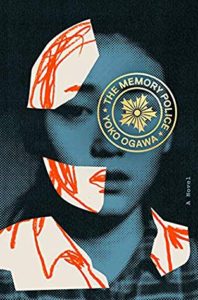
Cover description:
On an unnamed island off an unnamed coast, objects are disappearing: first hats, then ribbons, birds, roses – until things become much more serious. Most of the island’s inhabitants are oblivious to these changes, while those few imbued with no power to recall the lost objects live in fear of the draconian Memory Police, who are committed to ensuring that what has disappeared remains forgotten.
When a young woman who is struggling to maintain her career as a novelist discovers that her editor is in danger from the Memory Police, she concocts a plan to hide him beneath the floorboards. As fear and loss close in around them, they cling to her wiring as the last way of preserving the past.
Review of The Things You Can See Only When You Slow Down by Haemin Sunim
It’s basically a collection of sayings, a book of “wisdom tiles” and even though not every saying applies to every reader, everyone can find something that applies to them. That was also my problem with this book. Whereas I experienced Love of Imperfect Things by Haemin Sunim as a journey, as one coherent story, The Things You Can See Only When You Slow Down felt like a collection of anecdotes. There was no story I could invest in from beginning to end and it started to feel repetitive early on. While some of the paragraphs were interesting, they didn’t stay with me because others replaced them in my memory. If you’re considering reading a book by Haemin Sunim, I recommend starting with Love of Imperfect Things.
I listened to this one as an audiobook: something I find very relaxing for spiritual and emotional well-being books like this. It is like being coached: someone encouraging you to do better, to become the better you (or telling you you are ok as you are). I wasn’t very impressed with the Dutch narrator for this book and I liked the English narrator of Love of Imperfect Things much better. That probably played a role in liking the other book better as well.
I added this book to my Best Korean Books list.
Check it out on Amazon.
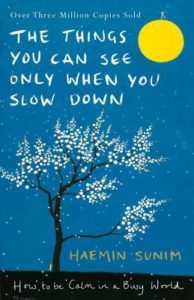
Cover description:
The world moves fast, but that doesn’t mean we have to. In this timely guide to mindfulness, Haemin Sunim, a Buddhist monk born in Korea and educated in the United States, offers advice on everything from handling setbacks to dealing with rest and relationships, in a beautiful book combining his teachings with calming full-colour illustrations. Haemin Sunim’s simple messages – which he first wrote when he responded to requests for advice on social media – speak directly to the anxieties that have become part of modern life and remind us of the strength and joy that come from slowing down.
